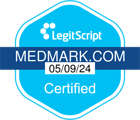
If you are contemplating seeking treatment for opiate addiction, you may be considering a opioid treatment program. You’ve finally accepted the advice from many that methadone or Suboxone treatment is the best way to achieve recovery. However, you may have concerns about the rules and regulations that exist in these facilities and whether you can make your own decisions.
While it’s understandable that you may want to have some control over your treatment, it’s essential to recognize that reputable opioid treatment programs function with strict guidelines. These guidelines are put in place to ensure your safety and promote your recovery. It’s crucial to follow these guidelines if you wish to continue receiving treatment at the center.
Therefore, it’s recommended to take some time to consider the rules and regulations and assess which ones you’re willing to adhere to. By doing this, you can approach treatment with a clearer understanding of what to expect and a greater likelihood of successfully completing the program.
The Rules at an Opioid Treatment Program
When you arrive for your assessment at an opioid treatment program, you’ll be asked to provide a urine specimen for a drug screen. It’s important to note that drug testing can occur at any time, even unexpectedly. While this may seem inconvenient, it’s necessary to ensure that you are not abusing other substances while undergoing treatment with methadone or Suboxone.
It’s vital to understand that you cannot test positive for alcohol or benzodiazepine medications such as Xanax, as they can be potentially fatal when combined with medication at an opioid treatment program. Although some patients have prescriptions for benzodiazepines to treat anxiety, it’s essential to assess whether their intake will put them in danger while undergoing rehab for opiate abuse. Additionally, alternative medications such as SSRIs can be considered.
Attending therapy sessions with your assigned counselor is also an important part of treatment. While you may have concerns about attending these sessions, it’s important to keep an open mind. Addiction is often accompanied by emotional struggles and stressors that led to addiction in the first place. Your counselor can provide a supportive and non-judgmental environment where you can express your concerns and work through them. Therefore, it’s essential to be receptive to therapy sessions and take advantage of this opportunity to make positive changes in your life. Your counselor is there to listen to your reasons, help you navigate your emotions, and support you in achieving your goals.
I Don’t Wanna…
Participating in group therapy can be a challenging prospect for many individuals who are seeking treatment for opiate addiction. While some may feel hesitant about attending, it’s important to recognize the value of group therapy sessions. If your opioid treatment program offers group therapy, consider yourself fortunate for the opportunity to attend. Being in the company of other people who share similar struggles as you can be a valuable part of the recovery process.
Some individuals may believe that they only need to use methadone or Suboxone for a short period of time before they can detox from opioids and quit using. However, the reality is that addiction recovery is a complex process that can take a significant amount of time. It may take several weeks to find the right medication dosage and to begin to adjust to the medication. Furthermore, withdrawal symptoms can persist for months, and cravings may continue even after successful treatment. But by participating in group therapy with others who share your goals, you can create a supportive and healing environment.
While you may be hesitant about attending group therapy session, it’s important to recognize the benefits they offer. Although you may initially feel that you have nothing in common with others who attend meetings such as AA, it can be a valuable opportunity to connect with individuals who have faced similar struggles as you. You may be surprised at the common experiences and challenges that you share with others in recovery. Group therapy sessions can provide an invaluable source of support and encouragement throughout the recovery process.
Give It a Chance!
Finding the right group session can be a transformative experience for many individuals in opioid treatment programs. These meetings offer a supportive environment where people can share their experiences with others who understand what they are going through. It is important to note that group therapy sessions do not force religious beliefs on individuals, and there are even groups that do not discuss religion at all.
At first, attending these meetings may seem daunting, but it is worth it to find a meeting that resonates with you. It can be comforting to hear stories from others who have struggled with addiction and found success in recovery. Many people in these meetings will tell you that recovery happens within the rooms. If you commit to attending meetings and finding a sponsor, you may find yourself on the path to mentoring others who are just beginning their journey to recovery.
Remember, you are not alone in your struggle with addiction. By attending and participating in group therapy at your opioid treatment program, you can connect with others who are facing similar challenges. We wish you the best of luck on your journey towards wellness and hope.
To start your journey towards recovery, contact one of our centers today.



